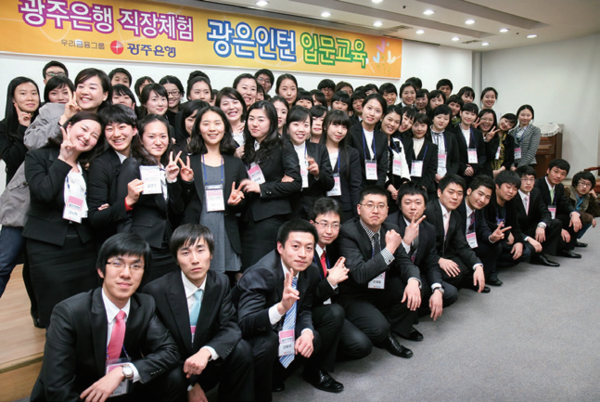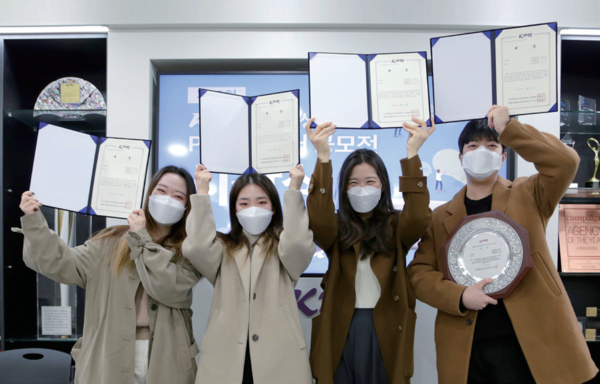Universities are trying to support their students in various ways to resolve the current unemployment crisis. Internship programs, especially, help students develop practical skills related to dealing with different social affairs. However, there is still controversy regarding whether student internships are effective or not. Therefore, the Sungkyun Times (SKT) will introduce how student internships have evolved in Korea, internship programs at Sungkyunkwan University (SKKU), the various problems of student internships, and possible improvements.
Internships Become Mandatory
The Rise of Student Internships
The student internship is a program in which students work in a specified company for a limited period. The company accepts students, so they can gain work experience. Internships in Korea were first applied in 1984 by Lucky-Goldstar, commonly known as LG nowadays. Since then, the recruitment process has changed remarkably. Before, businesses selected new employees through a large-scale open recruitment method. However, the newly introduced internship method evoked great interest in the business world. Following the change in dynamics, the internship system secured a place in Korea during the 1980s for the early securing of excellent human resources. The atmosphere changed during the 1990s, along with the International Monetary Fund (IMF) crisis; the government created an arbitrary internship system to solve the dilemma of rising unemployment. Of course, this did not go on for much longer, with government subsidy policies coming off as fruitless. Later, the year 2000 marked a new page in the Korean internship system; companies, rather than the government, took the initiative in the internship system once again. The internship system most well-known to the public nowadays is the result of various trials and errors over the past few decades. Since then, the internship program has become an essential step to take before employment among college students.

Student Internships in SKKU
An “Internship” is one of the five essential certifications at SKKU that students must complete before graduation. Through this policy, students can naturally experience internships before graduation, giving them a head start in the job market. Moreover, SKKU provides full support towards its students through field-training internship programs as well. Field-training internship programs are largely divided into field education and problem-solving projects; on the other hand, field education is divided into three categories: the corporate field training course, the influencer course, and the global company training course. The corporate field training course is the most common type. It is a cooperation program between universities and companies in which students can experience the skill sets required by companies in advance. Meanwhile, problem-solving projects are divided into two categories: regional problem-solving projects and corporate problem-solving processes. Again, corporate problem-solving processes are more favored by students. They involve students and advisors to handle potential corporate difficulties and propose possible solutions. As such, the various student internship programs at SKKU allow Kingos to gain practical experience and become more exposed to experts in their field of interest.

Problems of Student Internships
Inefficient Student Internships
In many cases, student interns are given minor chores instead of tasks that may help build one’s practical capabilities. Experience-based student interns are often ordered to complete auxiliary tasks, such as binding and separating documents and answering the phone. Kim Soo-yeon, a senior from the College of Economics who worked at a local newspaper, said, “I did not learn much from my internship. All I did was browse the internet.” Nevertheless, although student internships may seem inefficient, they have risen to become an essential step to take before one enters the job market. Companies often rank candidates with internship experience higher than others during the recruitment process. In the case of public enterprises, applicants who have conducted an internship in the said company are given 5-10% additional points during the screening process. In the case of private companies, according to a survey by Incruit, a job search platform, 42.3% of large domestic companies give preferential treatment regarding candidates with previous internship experience. As such, modern-day student internships have deteriorated to become just an additional line in one’s resume, even though there is not much to learn from them.
Inappropriate Wages and Internship Durations
There is no doubt that the current Korean job market is overheated. However, at times, competition for student internships seems to be even higher than open recruitments for full-time jobs. According to another online recruiting platform JobKorea, as of January 2022, internship acceptance rates were recorded to be 300:1. The problem is that even if students gain the internship after overcoming such high competition, there will be nothing but labor exploitation waiting for them. Even though Guidelines for Work Experience Trainees published by the Ministry of Employment and Labor have prohibited overtime shifts since February 2016, many businesses still require student interns to stay after work for “additional training” and refuse to give them extra pay. According to MBC, Mr. A, who worked as a recruitment-linked intern in the advertising industry, said that he was forced to work overtime and during weekends but did not receive extra income. Moreover, even though the recruitment-linked internship for Mr. A had only been supposed to last five months, the company extended the period to eight months, which was three months longer than the contract. On the other hand, there is also the problem in which students that take part in recruitment-linked internships do not even get considered for conversion into full-time employees. In such cases, companies gradually extend the internship period rather than reviewing the interns for full-time job opportunities; this leads to increased pressure and stress on the part of the students.
Improving the Quality of Student Internships
Government’s Support for Student Internships
The government should guarantee the minimum hourly wage for student internships as well. As recruitment-linked interns are almost fixed-term workers, they are usually able to receive appropriate wages. However, experience-based interns are often neglected, as it is hard to fixate their position in the labor market. Thus, the government should either grant subsidies or devise a way to acknowledge experience-based interns as laborers so that they can be guaranteed their minimum wage. To do so, the Ministry of Education must explicitly make operating regulations for supporting expenses of field training. In addition, the government should conceive a policy that could prevent companies from extending the period of recruitmentlinkedinternships without notice. Recently, some companies have been called out for not even considering converting recruitment-linked interns into regular workers, which happens to be a violation of the initial contract. Therefore, the government must keep watch on these companies by checking whether they are conducting internship programs based on the original purpose for each type of internship.
University’s Effort for Student Internships
The “work-learning parallel system,” which was first designed by Germany and Switzerland, suits the Korean reality of workplace-based learning. Through the worklearningparallel system, workers, especially student interns, should complete field training and theoretical education in a parallel manner through cooperation between the university and companies. Universities should design a practical education program so students can aim to complete both areas of learning, and companies should modify their manual following university requirements. Shortcomings in the system can be supplemented with off-site training at facilities such as national educational institutions, public institutions, and local government educational institutions. In addition, students must aim to enhance their own skill sets through liberal arts courses at their school. For example, in SKKU, students can take the following courses: Field Practice, StartupField Practice, Start-up Business Planning, and Start-up Business Models. Finally, the school should design a system to oversee students conducting internships and ensure that they are not treated unfairly.
Universities provide students with the chance of gaining experience by supporting various types of student internships. However, recent controversies regarding student internships make us wonder: is the policy really for the students? It is now time for the government, universities, and students to stand up together and face the student community’s difficulties as one.
